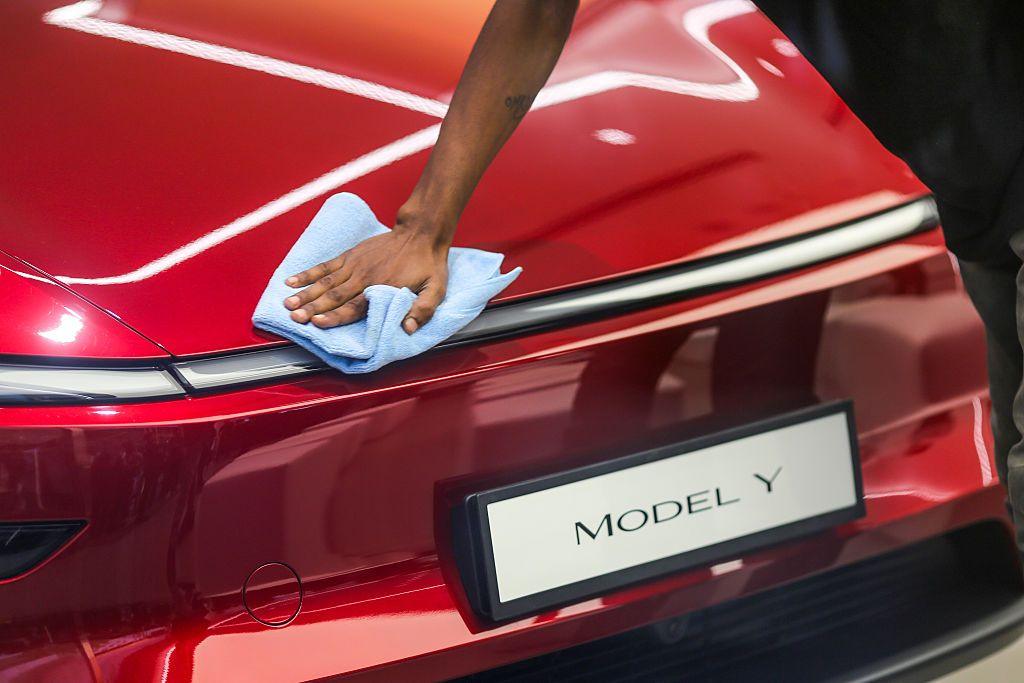Tesla announced plans to develop more affordable vehicles and secure regulatory approval for its self-driving software in Europe this year, aiming to revitalize its business amid current challenges.
In a recent statement to investors, Elon Musk’s electric vehicle company revealed that “first builds of a more affordable model [began] in June,” coinciding with a reported decline in vehicle deliveries and reduced profitability.
The company is currently navigating a complex landscape marked by reductions in U.S. government subsidies for electric vehicles, increased competition from Chinese automakers, and potential brand repercussions stemming from Musk’s controversial political activities.
Tesla also informed investors that U.S. tariff policies had cost the company $300 million in the three months leading up to June, with warnings of further financial strain in the coming months.
Chief Financial Officer Vaibhav Taneja noted that the expiration of tax credits for electric vehicle buyers in the U.S. is also anticipated to negatively impact the company’s performance.
Tesla refrained from updating its full-year outlook, citing the “difficult[y to] measure the impacts of shifting global trade and fiscal policies.”
Revenue for the three months ending in June experienced a 12% year-over-year decrease – the most significant drop in at least a decade – following a 14% decline in deliveries. Profits also decreased by 16%.
During a Wednesday address to investors, Musk expressed optimism that European sales would increase once customers gain access to the company’s self-driving software.
He anticipated initial approval in the Netherlands, with hopes of securing endorsement from the European Union, despite what he described as its “Kafka-esque” bureaucracy.
“Autonomy is the story,” Musk stated. “Autonomy is what amplifies the value [of the company] to stratospheric levels.”
However, Tesla’s historically robust profit margins have contracted considerably, with profits declining in five of the last six quarters.
Shares have decreased by approximately 30% from their peak last year, following Musk’s support for Trump’s successful White House bid.
In May, amidst growing concerns regarding the company, the head of Tesla’s board publicly refuted claims that the company had begun searching for Musk’s replacement.
Investors responded positively to Musk’s departure from the Trump administration, with expectations that he would refocus his attention on the company and abstain from political involvement.
However, the contentious separation from the White House, coupled with Musk’s flirtations with initiating a new political party, has continued to unnerve investors.
Earlier this month, Tesla investor and Trump supporter James Fishback addressed a letter to the Tesla board, urging it to assess whether Musk’s political ambitions are “compatible” with his responsibilities as chief executive.
Analyst Dan Ives, known for his favorable stance on the company, also called upon the board to implement safeguards, prompting Musk to respond tersely on social media: “Shut up, Dan.”
Daniel Binns, global chief executive of brand consultancy Elmwood, suggested that Musk’s “shenanigans” have eroded some of the fervent support that had previously enabled the company to expand without investing in advertising.
Given Tesla’s current environment of heightened competition, Binns asserted that the introduction of a new model alone is unlikely to resolve the company’s challenges.
“It will help… but it’s got to be more than just another car,” he stated. “The market’s caught up to them.”
A local resident says the cost to scrap a vehicle with electric capabilities costs too much.
The company behind the brands Vauxhall, Jeep and Fiat says Trump’s 25% tariff on cars has hit trade.
Scientists at Jaguar Land Rover and the University of Warwick have been researching the technology.
The carmaker says the cuts are part of “normal business practice”, but one expert blames US tariffs.
An Oxfordshire County Council project will see charging channels installed outside 500 homes.

